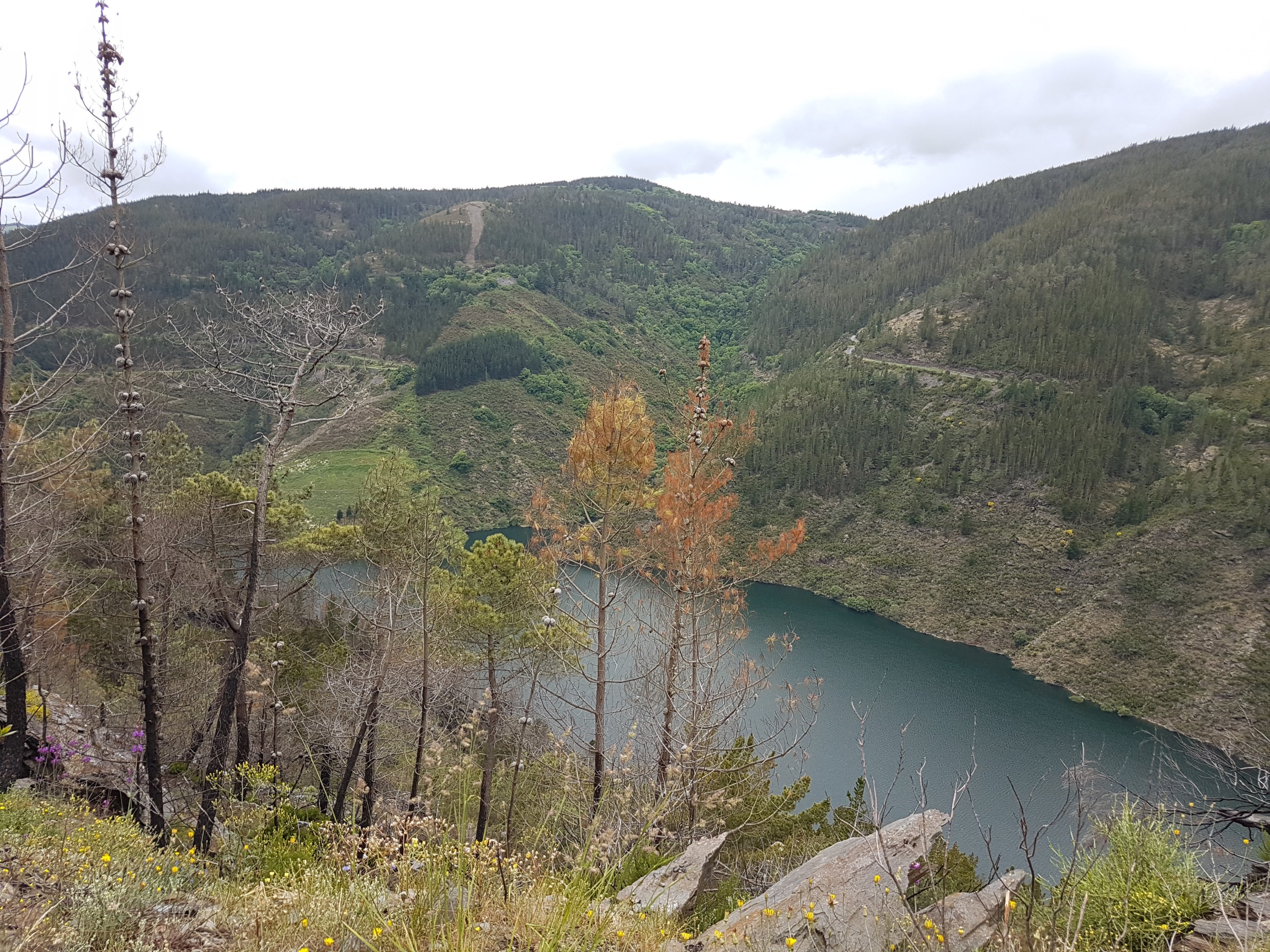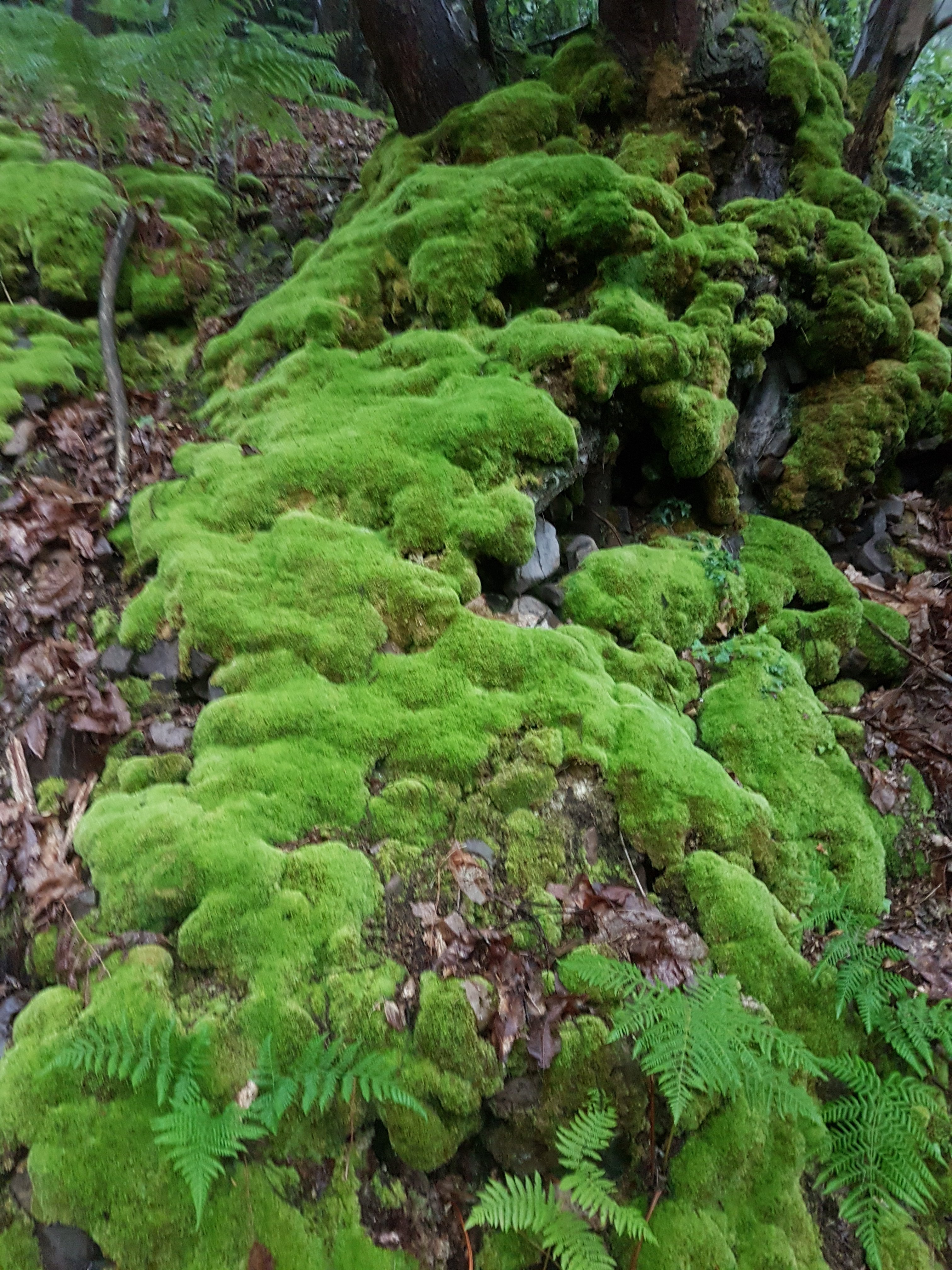
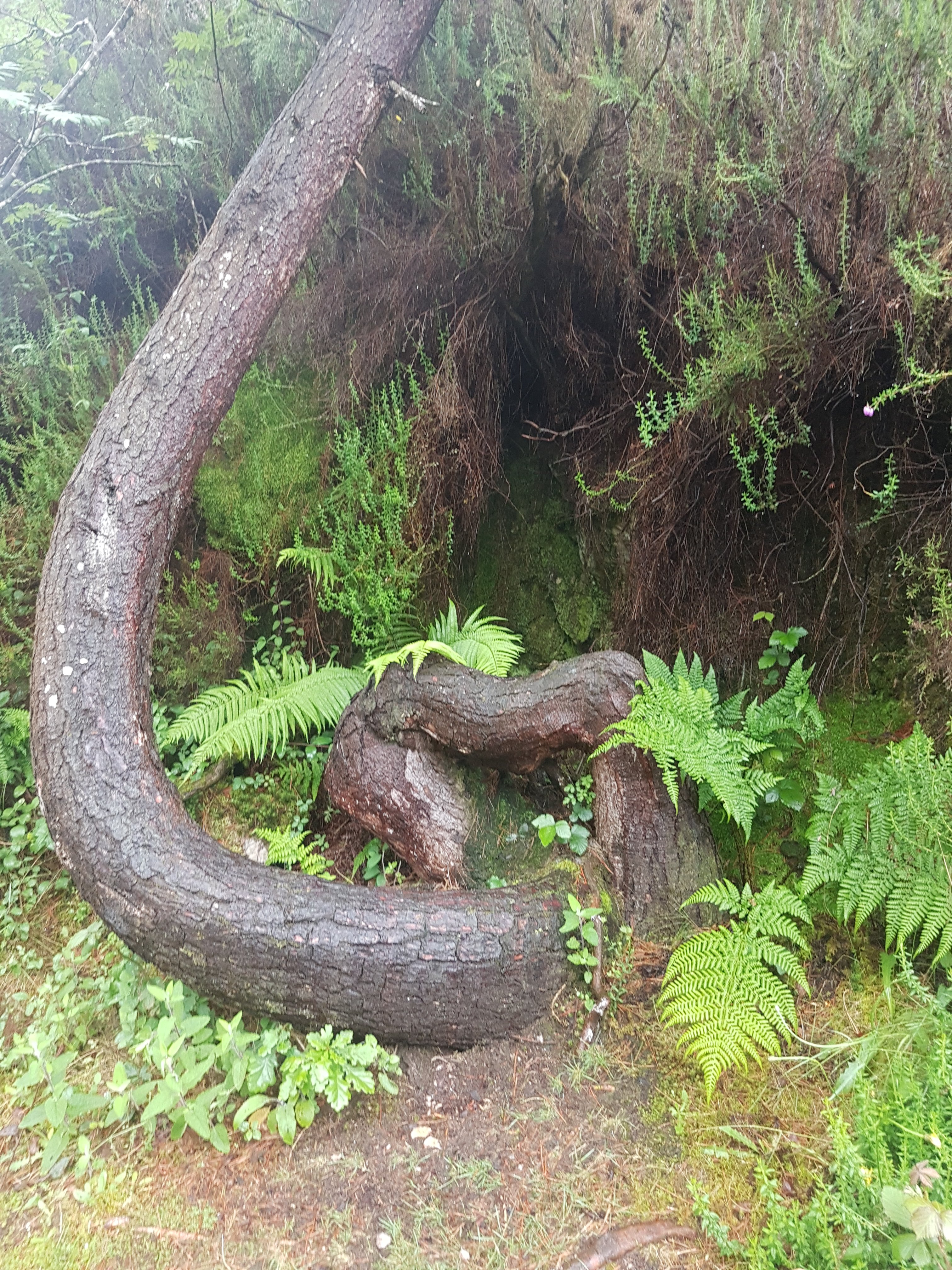
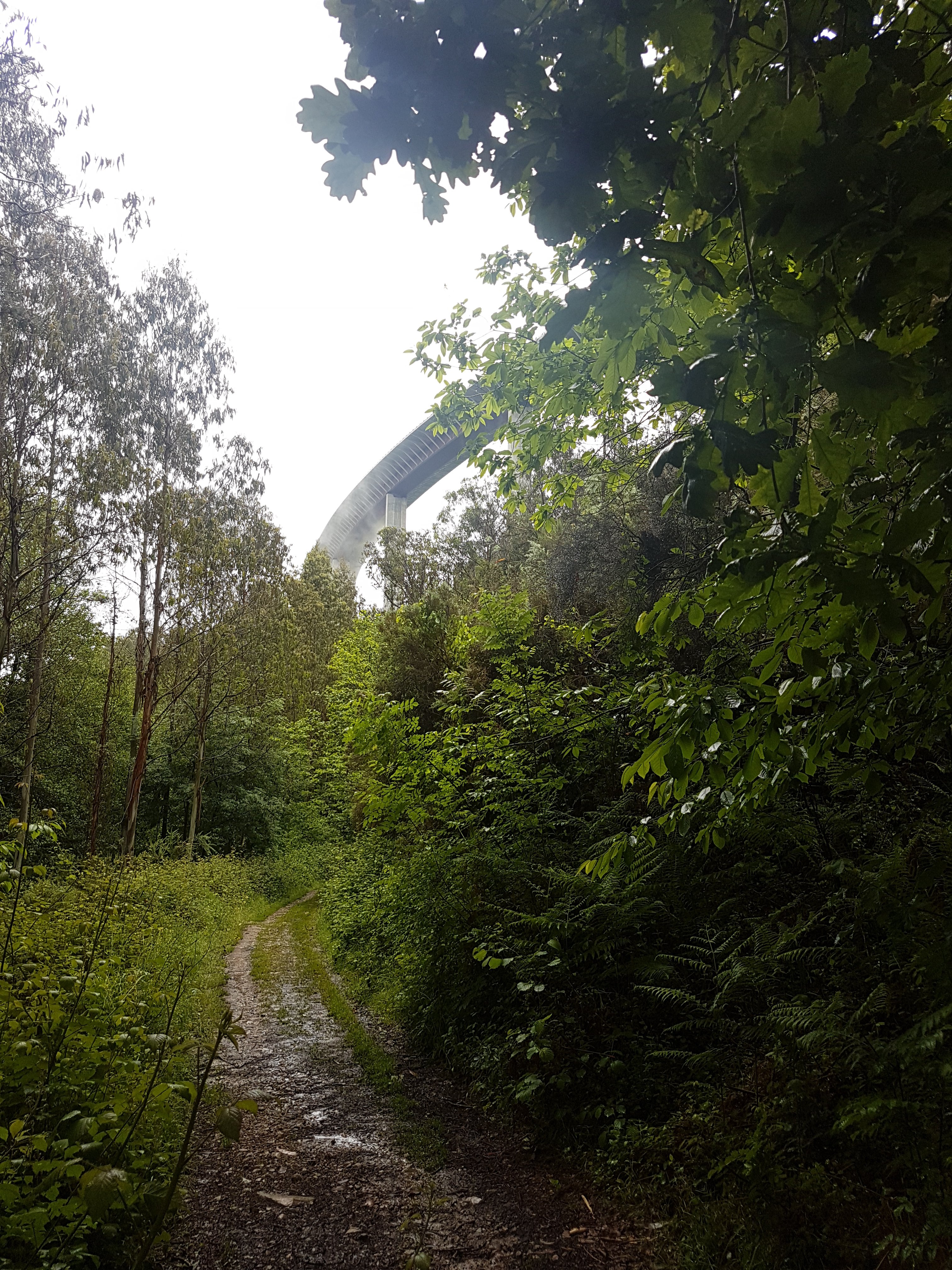
From Oviedo we take the Primitivo route, so called because a ninth century Asturian regent made the pilgrimage to Santiago, and for a few hundred years it was the only safe route – Saracens to the south, pirates to the north. It involves a few long days, a series of long ascents and descents, through a wild moorland landscape, populated by the remains of a half dozen remote hospitales, wild horses, a handful of giant doleful cows and a cataract of humming wind turbines.


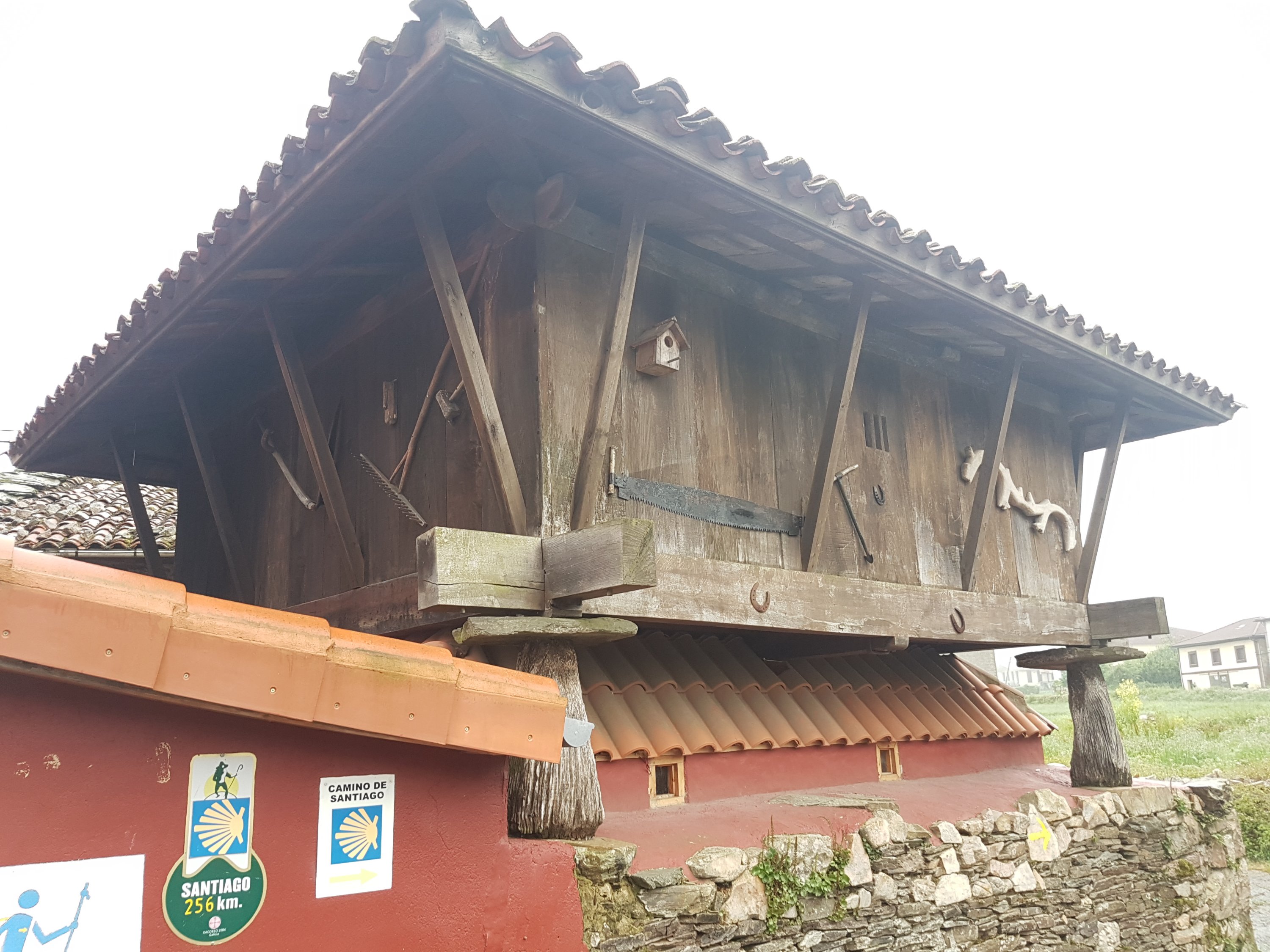
At one point the route branches, up and over the ‘Hospitales’ road, or down and then sharply, savagely up via the lower road. The longer, latter route is generally taken over two days. The decider is the weather: at an altitude of 1200 metres wind, rain, fog/mist/cloud can make the former impossible. The landscape and twenty kilometres of wilderness make it difficult to refuse. In Campiello, site of two albergues at the gateway to this world, weather forecasts are studied, opinions exchanged, runes read in the creased faces of locals, but no-one knows what the morning will bring. In the night, above the occasional din of snoring, rain can be heard.

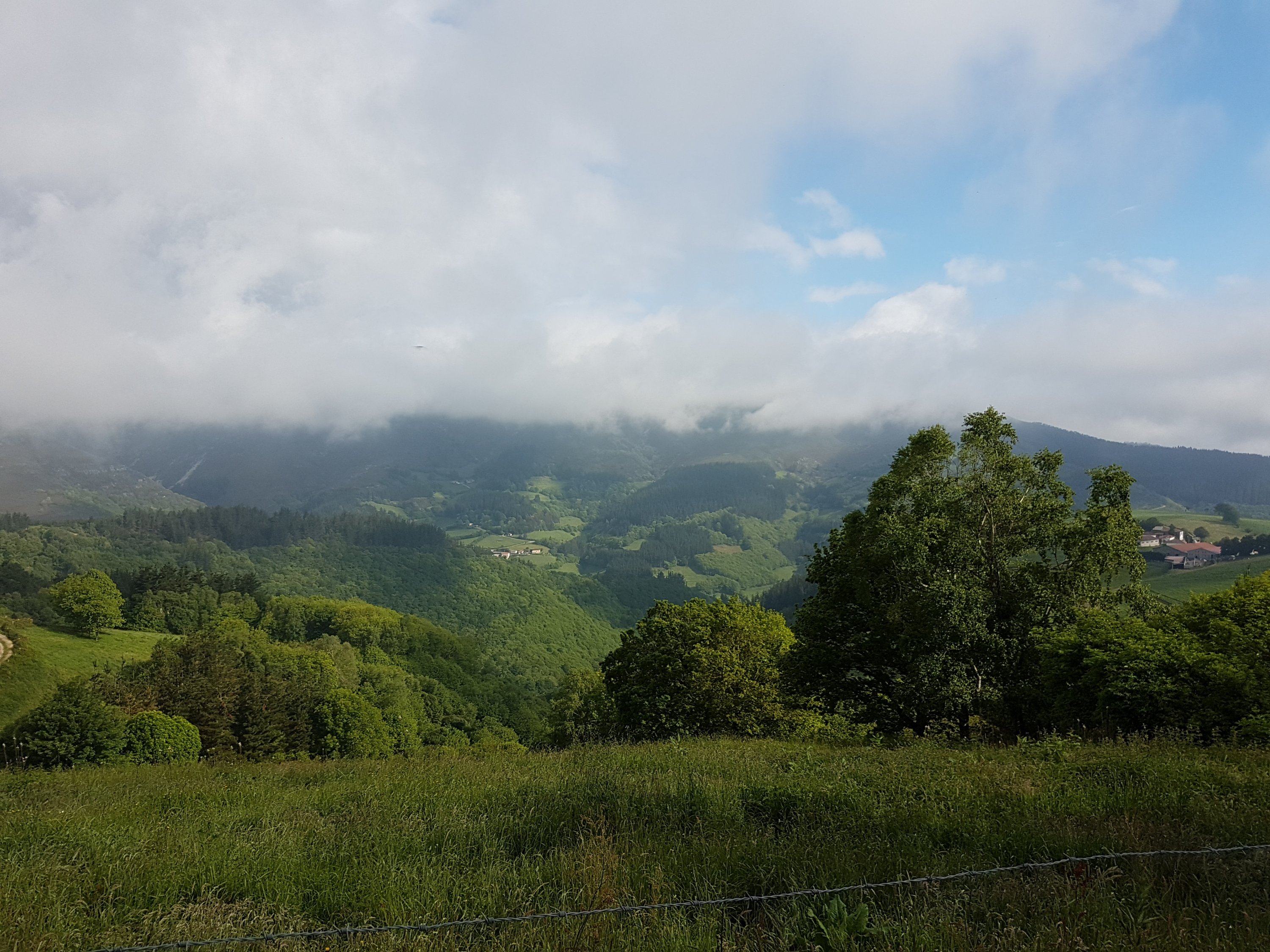


Two days before we had been well briefed in all of these choices, by David and his partner, the lovely hospitaleros at a lovely albergue in Bodenaya. Here, you are met with tea, a warm welcome, can help yourself to coffee, beer, wine, take a bed upstairs, enjoy a great communal meal, with the 13 others lucky enough to have arrived before it’s full, slumber in creakless comfort, then breakfast and off we go – all for, well you decide, whatever you think its worth, post it into the box.


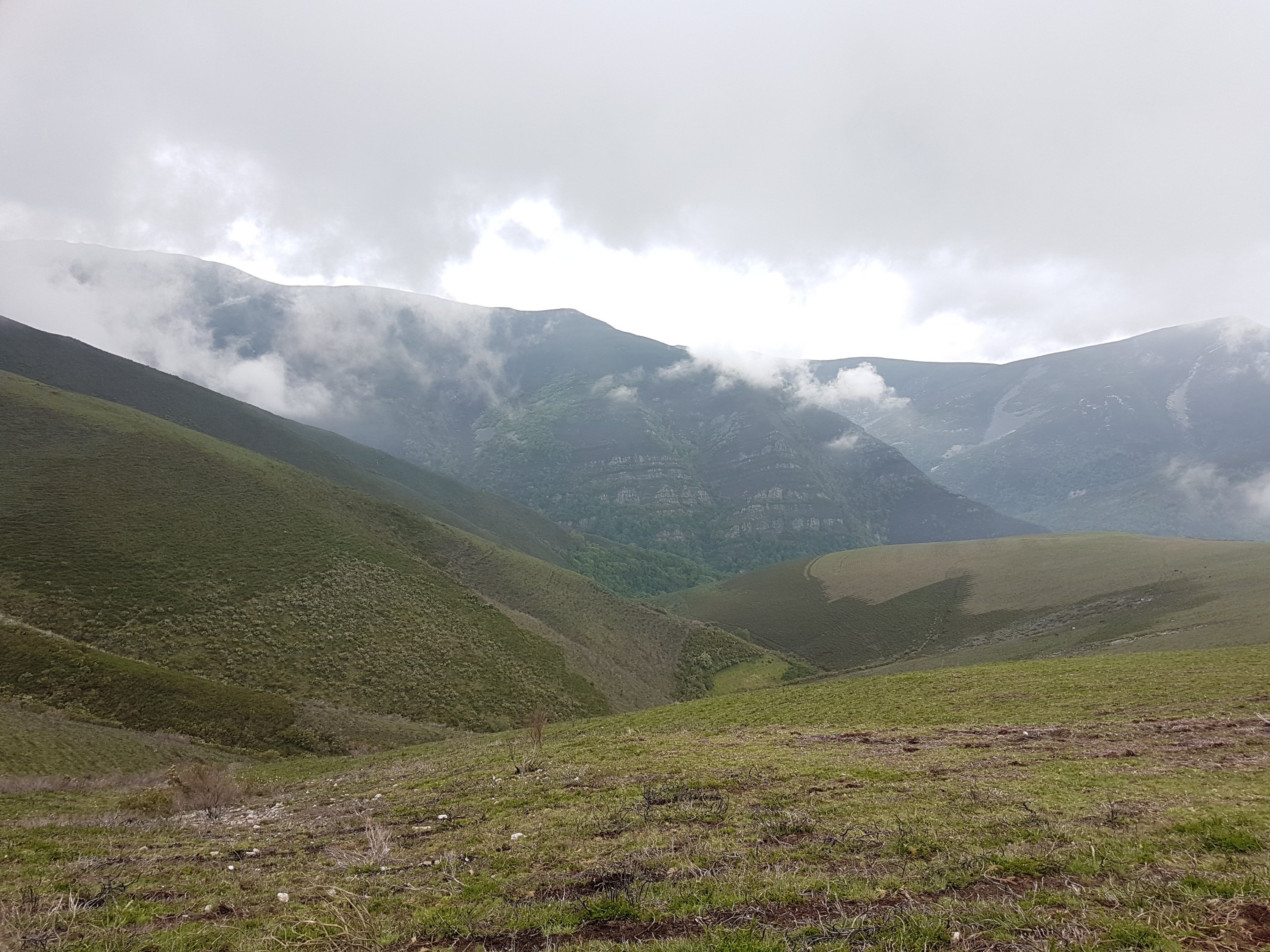
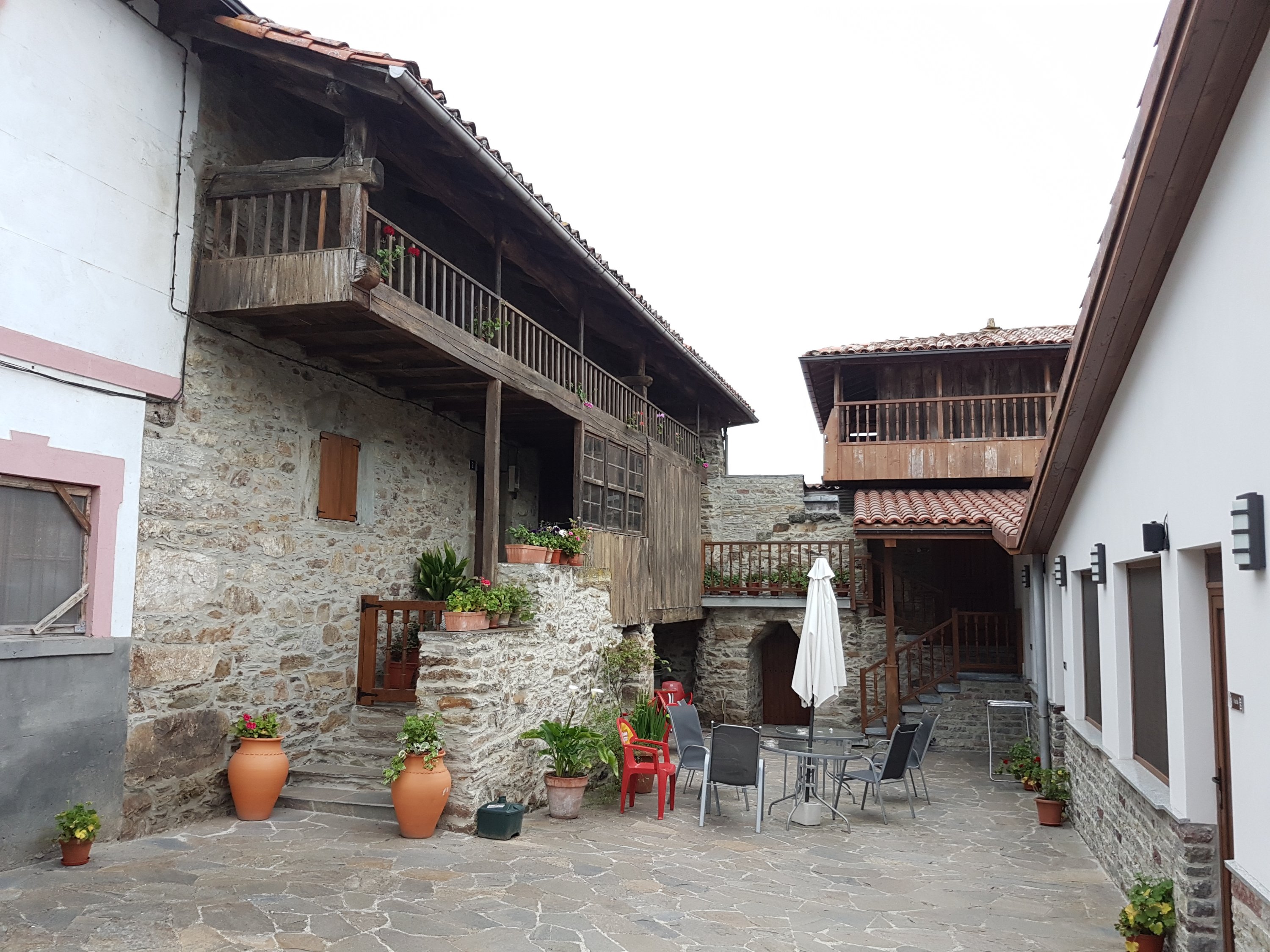
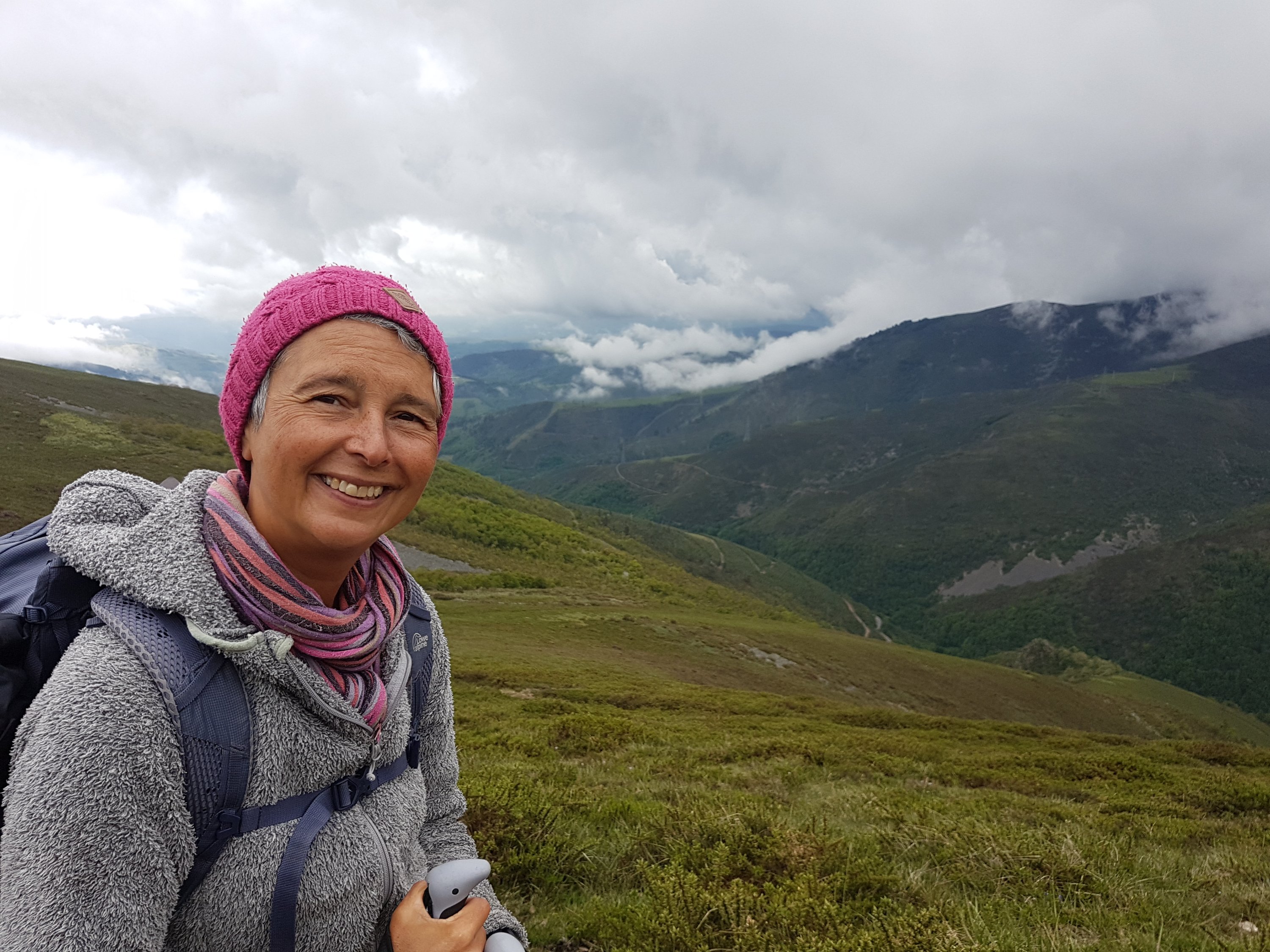

For the few hours after we walked away, there was much discussion about David and Celia, their energy, their albergue, the curious magic of their offer – they were funny and real, committed to the idea of pilgimage, not as Christian tradition but as human tradition, committed to creating the conditions which allow connections to be made. For the next five days, partly because of the terrain, we fourteen who stayed that evening would find ourselves together again, and always with a big smile, Hola!


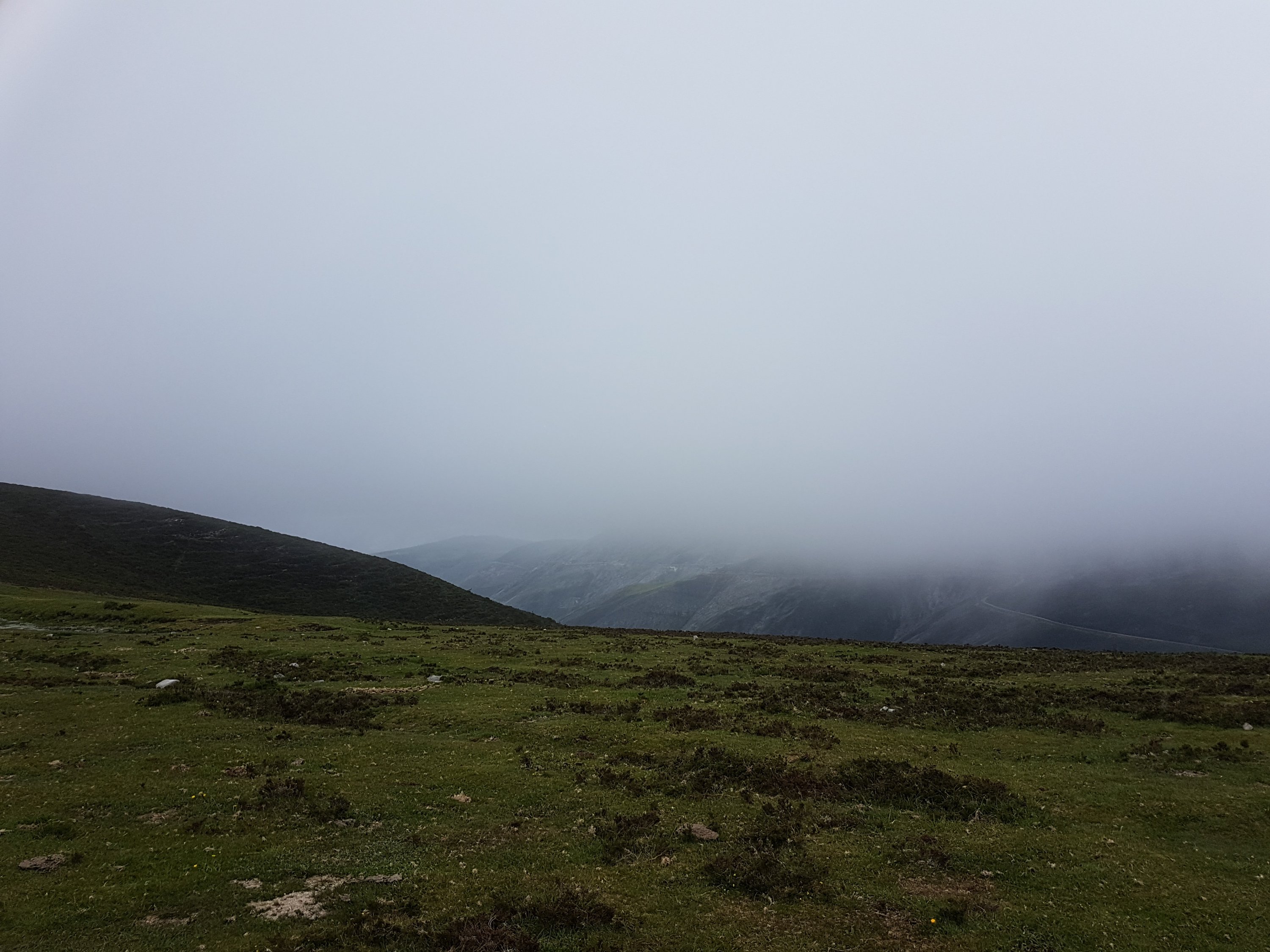


David’s information about which route to take – the history, the story – helped to decouple what might be possible from the faintly macho entitlement to risk and adventure that often ends up with a 999 call, or here 112 (no, that’s not a bearded couple you’re ordering whilst you’re freezing and disoriented).


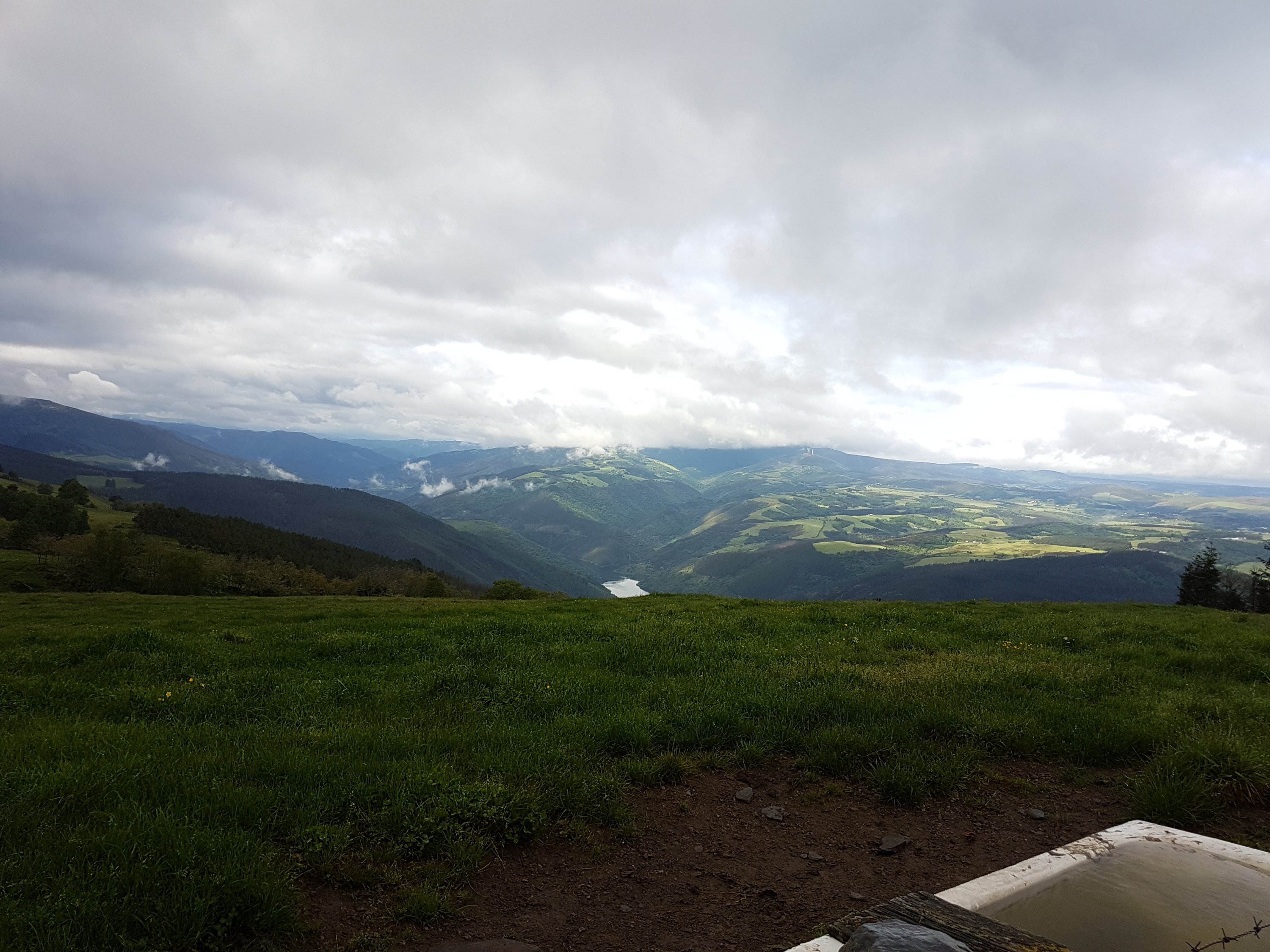
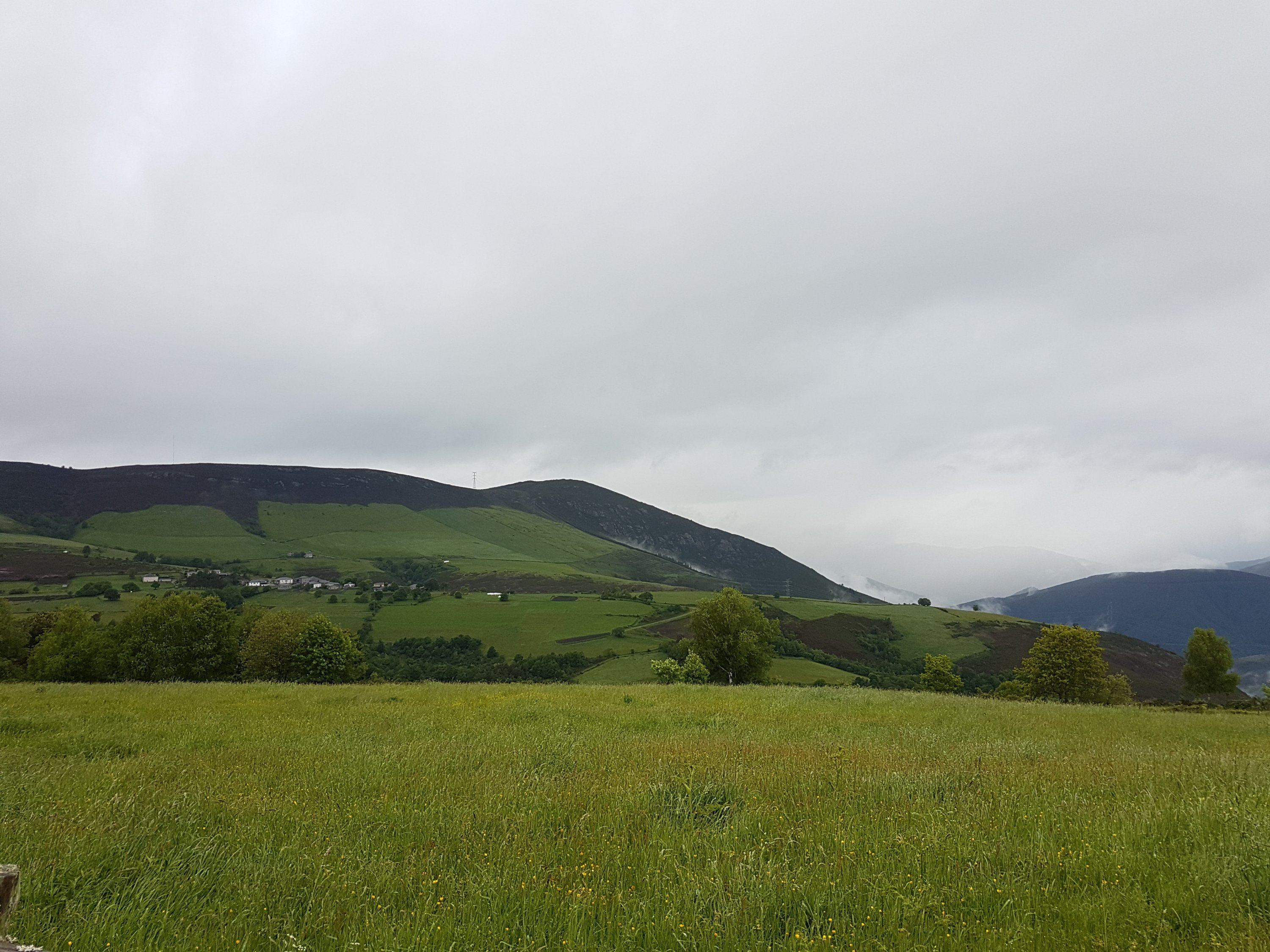
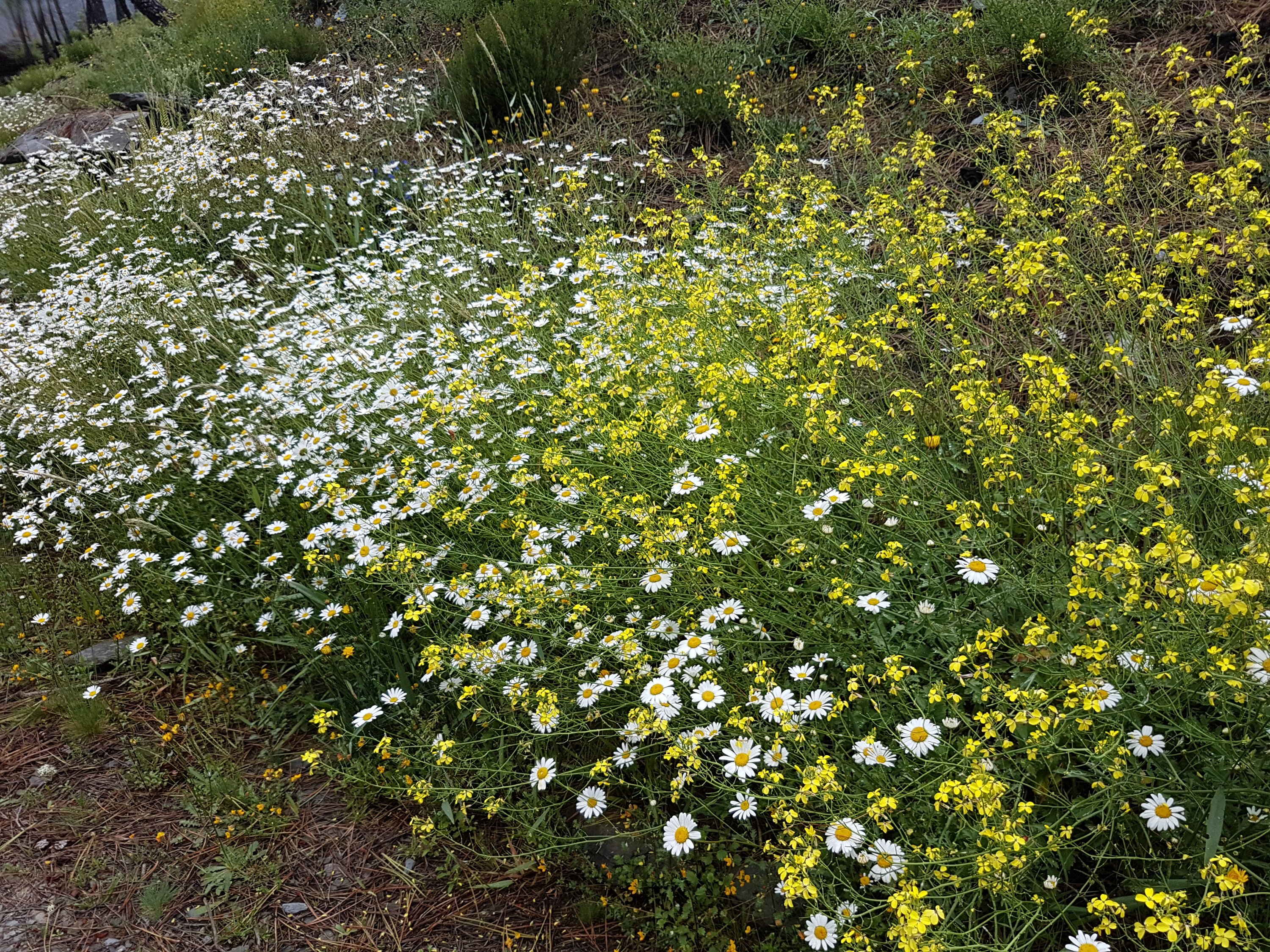
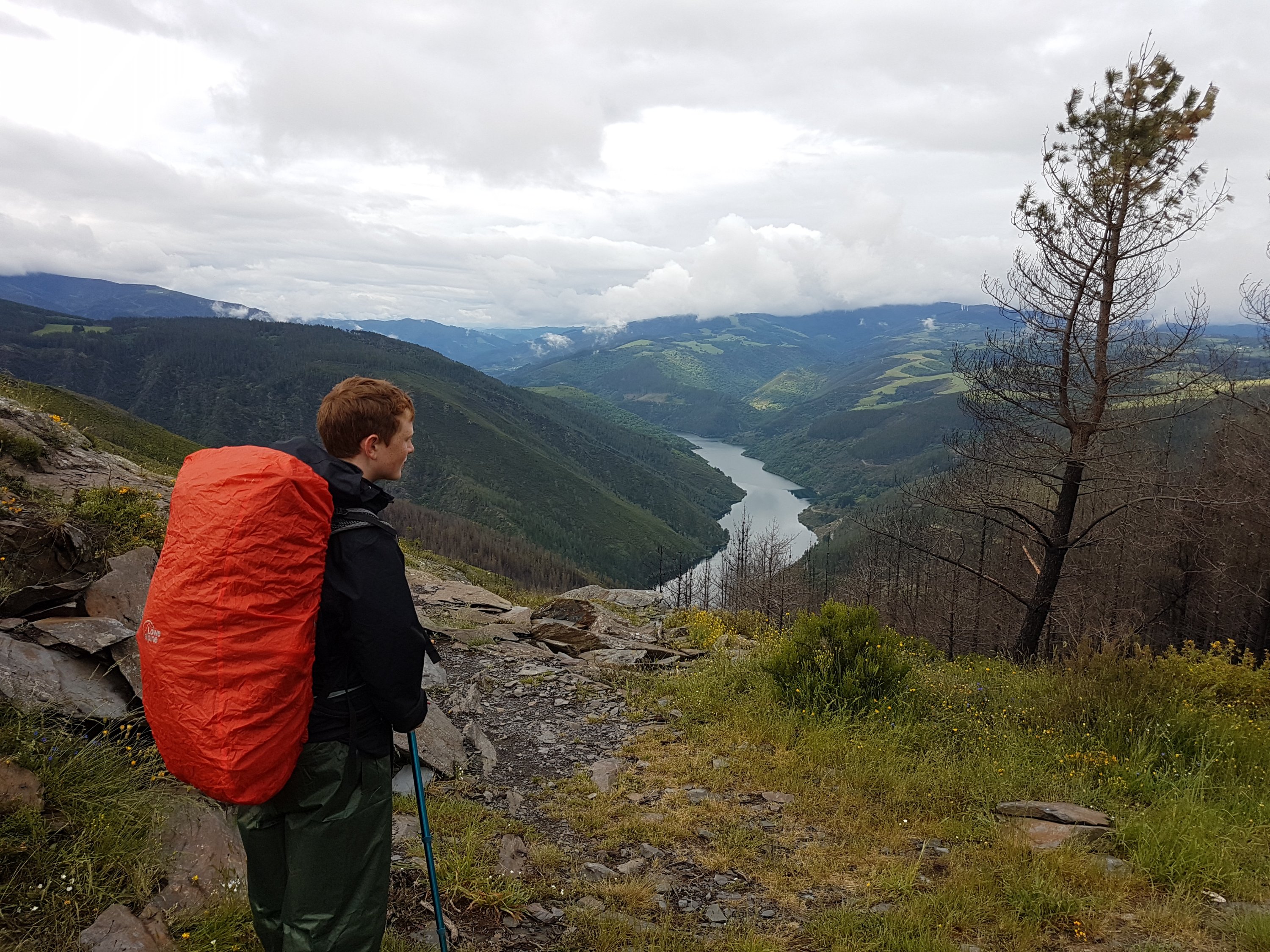

In the end we set off, hopeful but none the wiser, mindful of some glorious views being swallowed whole in seconds by the sleight of hand of clouds, blue sky above, pockets of white hugging some hills below, visibility fine. We reached the fork. All looked good. Up we went.
The endless wild flower pastures and meadows we had passed through in Asturias, with their dreamy swaying grasses, now gave way to gorse, and heather, boundless in their flowering colours – yellows, whites, purples, blues, lilacs – the skeletal remains from last year’s fires a beautiful counterpoint to the lush spring growth. Up. Occasionally the clanking bells of itinerant cows could be heard somewhere distant.
We stopped and snacked near the sight of a ruined hospitale, a grove of stunted pines, some mossy clumps of stones, a dozen dormant cows reclining on the grass. Every now and again the world would disappear, the view would shrink from twenty kilometres to twenty metres, but then just as suddenly we’d be above the clouds as they wove through the valleys below.
Refreshed, we carried on, climbing slowly, and following the ridge just above, then we peaked, before heading along and ever so slightly down. The cloud came down, waterproofs donned, visibility a modest five metres, the waymarks beckoning us on.
Two hours later, we suddenly walked out of the cloud, our eyes jumping as they adjusted to depth and distance. At a tiny chapel we lunched on tinned sardines and bread, as a giant dog begged to join us. Our destination, Berducedo, the next evidence of human habitation, lay two hours further, and warranted the following mention in our guidebook: ‘a pleasant, small town, with a lot of livestock, two albergues and a shop’. Oh, such things as these are dreams made of.
